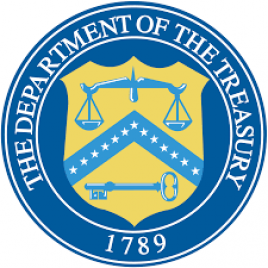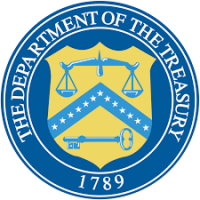Treasury Addresses Single Audits, Other Issues in Latest CRF FAQ Update

The Department of the Treasury has attempted to provide some clarity for recipients of Coronavirus Relief Fund (CRF) dollars by including some discussion on single audits in its most recent version of its CRF Frequently Asked Questions (FAQ) document to state, local and tribal governments.
Soon after the creation of the CRF as part of the Coronavirus Aid, Relief, and Economic Security Act (CARES Act) (Pub. L. 116-136), Treasury began issuing guidance to recipients through the FAQ, which it has updated several times. An Oct. 19 update includes a new question that asks what the differences are between a subrecipient and a beneficiary under the CRF for purposes of the Single Audit Act and Subpart F of the uniform guidance regarding audit requirements.
In response, Treasury explains that the Single Audit Act and Subpart F audit requirements apply to any “non-federal entity,” as defined in Subpart A of the uniform guidance, that receives CRF payments in the amount of $750,000 or more. Non-federal entities include subrecipients of CRF payments, including recipients of transfers from a state, territory, local government or tribal government that received a payment directly from Treasury. However, subrecipients would not include individuals and organizations (e.g., businesses, nonprofits or educational institutions) that are beneficiaries of an assistance program established using CRF payments. It further adds that the Single Audit Act and Subpart F audit requirements do not apply to beneficiaries.
Among other updates, the FAQ addresses another issue. A question asks whether a small business that received a Small Business Administration (SBA) Payment Protection Program (PPP) or Economic Injury Disaster Loan (EIDL) grant or loan due to COVID-19 may also receive a grant from a unit of government using payments from the CRF. In response, the FAQ explains that receiving a PPP or EIDL grant or loan for COVID-19 would not necessarily make a small business ineligible to receive a grant from a CRF recipient. A CRF recipient’s “small business assistance program should be tailored to assist those businesses in need of such assistance,” Treasury adds. “In assessing the business’ need for assistance, the recipient would need to take into account the business’ receipt of the PPP or EIDL loan or grant. If the business has received a loan from the SBA that may be forgiven, the recipient should assume for purposes of determining the business’ need that the loan will be forgiven. In determining the business’ eligibility for the grant, the recipient should not rely on self-certifications provided to the SBA.”
Treasury goes on to say that if the grant is being provided to the small business to assist with particular expenditures, the business must not have already used the PPP or EIDL loan or grant for those expenditures.
Even though much of the CARES Act funding has now been spent, there are still ongoing questions, so one can expect there to be even more updates to the FAQ over time.
Join us for our following Federal Grants Forums:
2020 Revisions to Indirect Cost Provisions Workshop| November 23, 2020
Revised Uniform Guidance Town Hall | December 1, 2020



